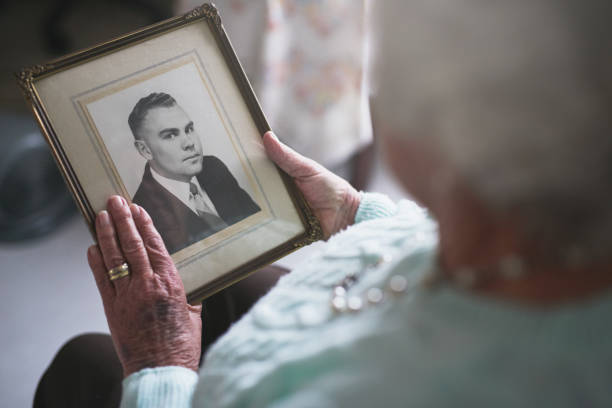
My wife died three years ago in a car accident. The past few years have been very painful, but now, thanks to the encouragement of family and friends, I’ve started dating again. My question is about how much I should reveal on dates. I’m not proactively bringing up the fact that my wife died, but because I’m in my early forties, the question inevitably comes up: Have you had a long-term relationship? Were you ever engaged or close to being married? When I tell my dates the truth, it completely changes the dynamic—the sympathy is overwhelming. I want women to like me for who I am, not for what I’ve been through, but I also don’t want to avoid telling anyone the truth when they ask; that feels deceiving. Any advice on how to deal with this is much appreciated.—DP, Portland, Oregon
The Gay Woman’s Perspective: Jody Fischer
I’m glad you wrote to us, and I’m so pleased to hear that you have supportive family and friends that have been with you through your great loss. I wonder if you’ve also been to therapy and done some inner work to move through your feelings of grief? The reason I ask is sometimes the reactions you get from people are not so much the result of what you say, but how you say it and the feelings (conscious or not) behind your words.
I know in my own life when I come out to folks and I have an apologetic tone in my voice, the people seem uncomfortable with my news and the whole situation seems awkward. But when I come out in a confident manner, not expecting any certain reaction from them, it usually goes well. So, DP, I wonder if a part of you is wanting that sympathy?
Looking For Widowed Singles? Try Loveawake Free Dating Site:
Online Dating For Widowed In Canada
Meet Widowed Women From Germany
The timing of when you tell someone is a key component as well, but it sounds like you have handle on that. Most women will be naturally sympathetic, but if you meet one you want to get more serious with, she’ll want to move beyond that and see the real you. I wouldn’t worry too much about her staying stuck in sympathy mode. Tell your dates when it feels right. But prepare yourself for a little tea and sympathy, then be ready to move beyond that. Perhaps to a gin and tonic.
The Straight Woman’s Perspective: Rebecca Brown
The phrase “honesty is the best policy” might seem kind of outdated and Little House on the Prairie-ish considering how many people feel compelled to lie just to get a date these days, but I still think it’s the best way to go.
Consider this, DP. Past a certain age, everybody’s got a story. I’m certainly not trying say your wife’s death is a mere “story”; I just think everyone has something they either don’t want to or aren’t sure how to tell someone they’re trying to impress. Think of the obstacles life can throw our way: divorce, cancer, bankruptcy, herpes, scars, burns, job loss, abuse … the list just goes on and on. Chances are, the person you tell also has her thing, too, and she might be wondering how you’ll deal with her news. In the initial stages of dating, I don’t think anyone needs to go into too much detail about your deep dark pasts, but if it comes up, tell the truth and move on. How you break the news—how much time you spend talking about it, your tone of voice, etc.—will determine how your dates interpret it and will help them understand where you are. And it sounds like where you are is looking for empathy, not sympathy.
Good luck, DP—and have fun. I think you could probably use more than a little of that.
The Gay Man’s Perspective: Darren Maddox
If they ask, you tell. If you don’t feel comfortable telling them at first, you don’t. Simple enough. But in good conscience, you can’t not tell someone about your wife when she asks you about past relationships; it’s deceptive. As painful as it must be, it’s best to get it out in the open so it doesn’t leave you wondering when you should back up and reveal something you kept from someone. If you want women to like you for who you are, this is a part of who you are. To tell people who you are also means telling them about your experiences, both good and bad. It’s a natural reaction to apologize when we find out some shocking news that we were not prepared to hear, but that only lasts so long. Our past experiences only take us so far and then our day-to-day actions take over. If someone falls in love with you, she will fall in love with you for who you are now.
The Straight Man’s Perspective: Chris Kennedy
You’re right, past relationships inevitably come up within a couple dates. You can’t, and shouldn’t, lie about your past. Death is a tough subject for many people to handle, so I feel for you. It’s heavy.
I like that you don’t lead with this unfortunate fact when you’re on a date. I like the way you put it in your email to us, “The past few years have been very painful, but now, thanks to the encouragement of family and friends, I’ve started dating again.” That quote made me feel like you’re putting your marriage in the past where it belongs and that you’re ready to move forward with your life. That should be enough for any prospective mate to feel you’re genuine about starting a relationship, too.
If your date is attentive and concerned—which she should be—then she’ll take the cues from you. If you own your past, she’ll have a much easier time dealing with it. With this, you should be able to move past the sympathetic dynamic toward a more realistic relationship with someone. You really seem like you’re in the right mindset and place here … yes, literally, too; Portland is really nice, if not a bit rainy. Hang onto those supportive friends and family and good luck in the dating world. Things are looking up for you … but bring an umbrella just in case.
